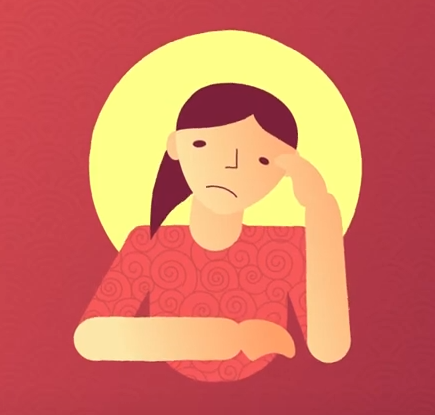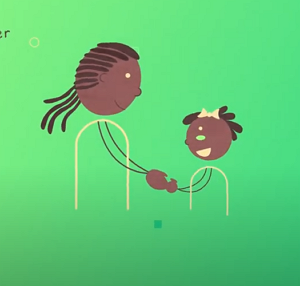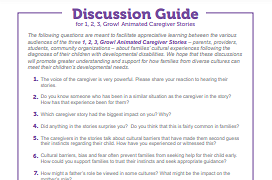1, 2, 3, Grow! Animated Caregiver Stories
What are the 1, 2, 3, Grow Animated Caregiver Stories?
How does the Discussion Guide work with the stories?
Who contributed to the 1, 2, 3, Grow Animated Caregiver Stories?
Who funded the 1, 2, 3, Grow! project?
What are the 1, 2, 3, Grow Animated Caregiver Stories?
“1, 2, 3, Grow !” is a TV program about early childhood development available on YouTube and cable television stations across Massachusetts for families of young children from a variety of cultures.
The “1, 2, 3, Grow! Animated Caregiver Stories” are short (3-minute) videos that engage providers on how to incorporate cultural sensitivity into their practices. The three videos share the perspectives of families from different cultures about how their families and communities may or may not have supported their needs following their children’s diagnoses of a developmental disability.
How can I see the videos?
Visit the 1, 2, 3, Grow! YouTube Channel to see all 3 videos:




How does the Discussion Guide work with the stories?
The Discussion Guide provides 10 questions that prompt learning discussions to facilitate appreciative learning between the various audiences of the three 1, 2, 3, Grow! Animated Caregiver Stories – parents, providers, students, community organizations – about families’ cultural experiences following the diagnoses of their children with developmental disabilities. The Discussion Guide is designed to promote greater understanding and support for how families from diverse cultures can meet their children’s developmental needs.
For more information about early childhood development and what to do when concerned
Visit, the CDC “Learn the Signs. Act Early” campaign to get more information and resources.
Visit the Massachusetts Act Early campaign to get more information and resources.
Who contributed to the 1, 2, 3, Grow Animated Caregiver Stories?
We would like to thank our team members below for their efforts on the 1, 2, 3, Grow! Animated Caregiver Stories.
A Production of
UMASS Medical School-E.K. Shriver Center
Members of the Massachusetts Act Early state team
Executive Producers
Elaine Gabovitch, MPA, Project Lead, UMASS Medical School-E.K. Shriver Center LEND Program
Joan Kelly Rafferty, OTR/L, CEIS. Project Co-Lead, MA Dept. of Public Health, Division for Early Intervention
Produced by
Animation Team
Lauren Willis, Content Director, Intercultural Productions
Alex Gomez, Executive Director, Intercultural Productions
Isamar Pérez, Producer, Intercultural Productions
Morgan K. Crossman, PhD, MA, Harvard Medical School-MGH for Children
Ivys Fernández-Pastrana, JD, Boston Medical Center
Elaine Gabovitch, MPA, UMASS Medical School-E.K. Shriver Center
Roxanne Hoke-Chandler, parent storyteller, Federation for Children with Special Needs Family Engagement Director
Banafsaj & Yousef Kanaan, parent storytellers
Joan Kelly Rafferty, OTR/L, CEIS, MA Dept. of Public Health, Division for Early Intervention
Oanh Thi Thu Bui, MA, MHA, parent storyteller, Federation for Children with Special Needs
Discussion Guide Team
Joan Kelly Rafferty, OTR/L, CEIS, MA Dept. of Public Health, Division for Early Intervention
Elaine Gabovitch, MPA, UMASS Medical School-E.K. Shriver Center
Morgan K. Crossman, PhD, MA, Harvard Medical School-MGH for Children
Oanh Thi Thu Bui, MA, MHA, Federation for Children with Special Needs
Ivys Fernández-Pastrana, JD, Boston Medical Center
Lauren Willis, Content Director, Intercultural Productions
Thank you to our partner organizations
Federation for Children with Special Needs
Massachusetts Department of Public Health
UMass Boston Institute for Community Inclusion
Who funded the ;1, 2, 3, Grow! project?
We extend our heartfelt thanks to our funders. The 1, 2, 3, Grow! project was funded through a Developmental Monitoring in State Systems grant awarded by the Association of Maternal & Child Health Programs (AMCHP ) and was supported by the CDC “Learn the Signs. Act Early.” program.
